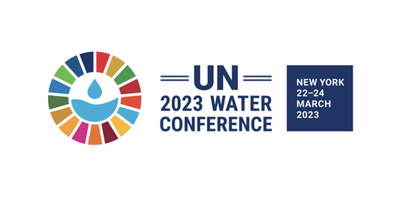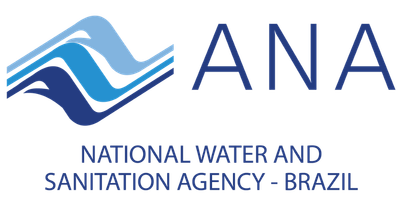SIDE EVENT ANA/UN WATER
From goals to results – the scenario of water resources and sanitation in Brazil
SCHEDULE
ABOUT


The UN decade of action for water as part of the commitments established by SDG 6, has guided public policies in Brazil oriented to achieve the universalization of sanitation services for all Brazilians by 2033. This voluntary commitment is also reflected in the National Basic Sanitation Plan.
These commitments have demanded capacity developing and strong cooperation between stakeholders in Brazil to innovate and create solutions for big challenges concerning water access and sanitation services.
A safe environment is mandatory to attract resources for the investment needed, so legal certainty and regulatory quality directly contribute to an environment conducive to long-term investments. Efforts to improve regulatory quality in sanitation sector in Brazil also contribute to the achievement of universalization targets and SDG 6 goals.
The expansion of sanitation services has a direct impact on the water quality, which is essential for maintaining a safe environment, aquatic life, and human supply. In addition, investments in the sanitation sector generate multiple economic benefits such as direct jobs and produce immediate impacts on the health and quality of life of the Brazilian population.
Many successful cases can be known in different regions of Brazil, which is one of the objectives of this side event.
SPEAKERS
João Genésio
Ambassador of Brazil
He is a Brazilian career diplomat since 1991; He graduated in Law and Philosophy and his work experience comprises cooperation in science and technology; multilateral negotiations in fora specialized in cocoa, sugar, coffee; analysis of foreign policy in Africa; negotiations in the IBSA and BRICS fora; negotiations on human rights at the UN; and consular affairs.
Veronica Sánchez
Presidente of ANA
Civil servant of the Ministry of Economics as a Public Policies and Government Management specialist. She has worked as General Coordinator of Oil and Gas in the Brazilian Growth Acceleration Program. Between 2016 and 2018, she was Special Advisor to the Civil Office of the Presidency, at the coordination of Strategic Reforms for the Federal Government. In 2019, she acted as Special Secretary for Federative Affairs at the Government Secretariat of the Presidency of the Republic, having also acted as Deputy Secretary-General to the Investment Partnership Program. The following year, she became leader of Articulation and Monitoring to the Presidency Chief of Staff Office.
Isabelle Vanderbeck
UN Environment Programme - UNEP
Isabelle VANDERBECK has extensive experience with the negotiation, formulation, and implementation of technical assistance projects primarily GEF funded, and has worked with multiple partners. These include partners from the GEF agencies, other UN Agencies, regional basin organizations, NGOs, government agencies, local governments and academia to foster multi-country transboundary water cooperation and the collective management of marine and freshwater transboundary water systems supporting policy, legal and institutional reforms.
Luana Pretto
Executive President of Trata Brasil Institute
Luana Siewert Pretto is a Civil Engineer, with a master's degree in Multicriteria Analysis and a postgraduate degree in Project Management. She worked at the state basic sanitation concessionaire of Santa Catarina, as director of Institutional and Governmental Relations at ASFAMAS and as president of the basic sanitation company of Joinville.
Sérgio Campos
Chief, Water and Sanitation Division Inter-American Development Bank
Prepared and supervised more than 45 different types of IDB financed projects including investment, policy based, performance driven, and supplementary loans. Led the Water and Sanitation sector dialogue for the Countries of the Southern Cone.
Teresa Vernaglia
President of the Brazilian Association of Private Concessionaires of Public Water and Sewage Services - ABCON
Elected “Executive of the Year” by Exame magazine in 2020 and “Executive of Valor” in the infrastructure sector by Valor Econômico newspaper in 2021 and 2022. Board of ABCON, I am a Member of the Advisory Board of ABDIB, of the Council of Leaders of CEBDS and of the Curator of Instituto Trata Brasil.
Sandra Akemi Shimada Kishi
Federal Circuit Prosecutor
Federal Circuit Prosecutor, MPF - Federal Prosecution Service. VP of the Brazilian Association of the members of the Prosecution Service of Environment. Member of the Global Institute of the Prosecution Service of Environment. Coordinator of the Water Connection Project of the MPF.
Joísa Dutra
Professor at FGV School of Economics and Founder-President of CERI
PhD in Economics from the Getulio Vargas Foundation, in Rio de Janeiro (2001), she was director of the National Electric Energy Agency (ANEEL), between 2005 and 2009. Visiting professor at the Harvard Kennedy School of Government, Harvard University, in 2010, and professor at the Getulio Vargas Foundation, in Rio de Janeiro.

